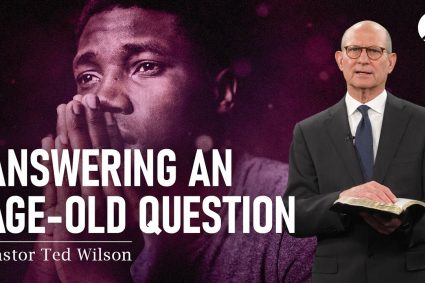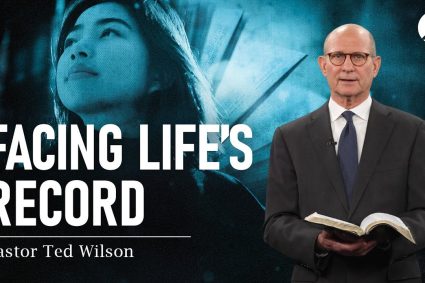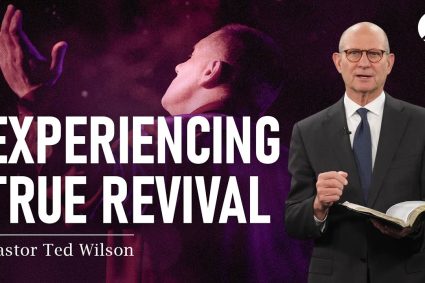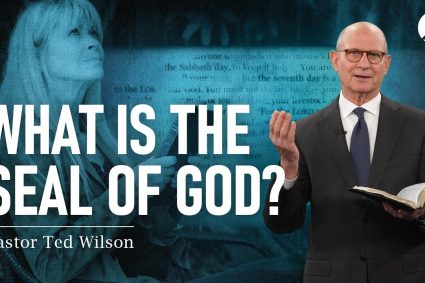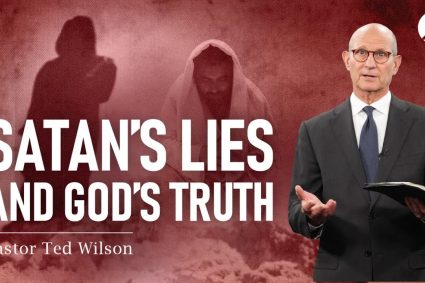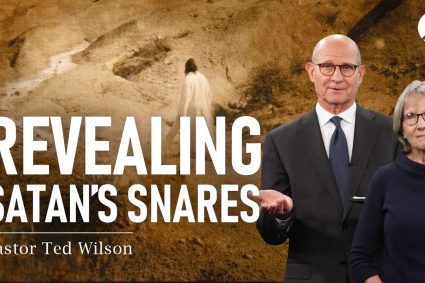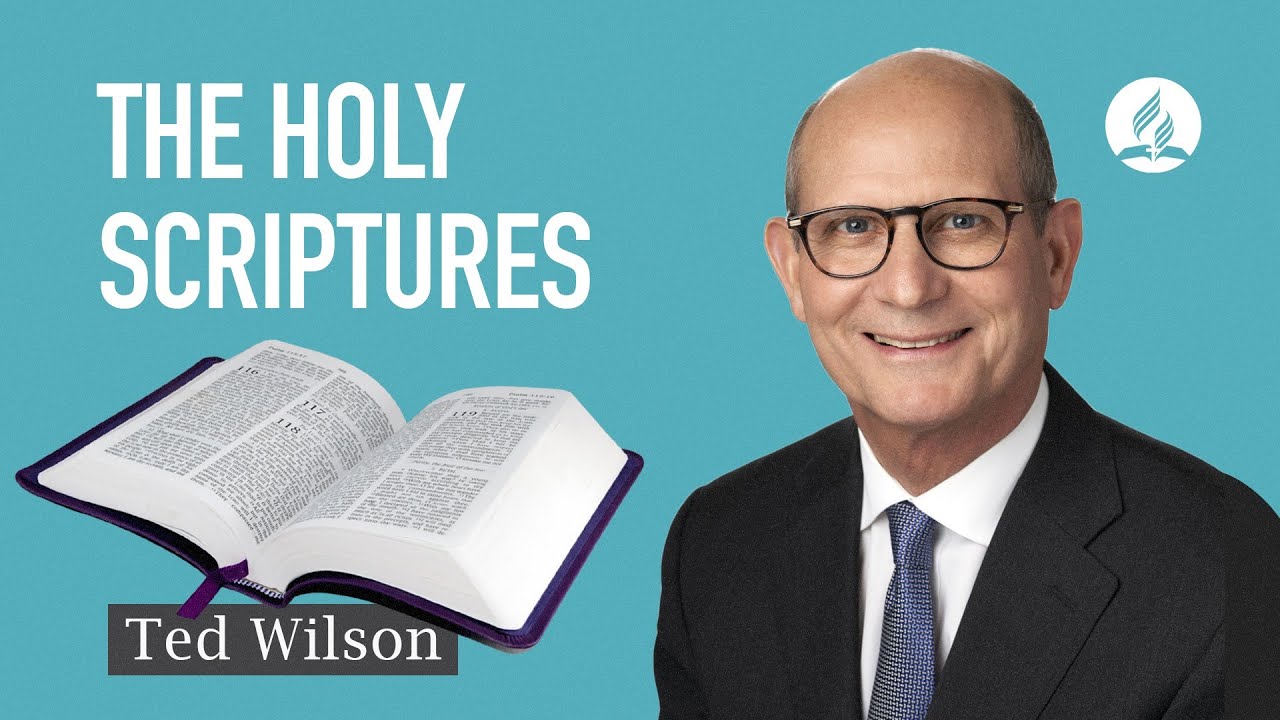
Series “28 FUNDAMENTAL BELIEFS” with Pastor Ted Wilson |
John 1:1 says, “In the beginning was the Word, and the Word was with God, and the Word was God.”
It’s a beautiful description of Jesus, the Son of God and the Son of man—a perfect blending of the human and divine.
Jesus has given us His words of life through the Holy Scriptures, the “living, powerful Word of God,” as Hebrews 4:12 says. He also affirmed that “these are they which testify of Me” (John 5:39).
We find Jesus’ footprints throughout the Bible. We see him through the Old Testament history, law, wisdom, poetry, and prophecy. He is also present in the New Testament Gospels, early church history, letters by Paul, and prophecy through the “revelation of Jesus Christ, which God gave Him to show His servants—things which must shortly take place” (Revelation 1:1).
The Bible is God’s message given to humanity in their language through men inspired and “moved by the Holy Spirit” (2 Peter 1:21). So, the Scriptures are like Christ in that they are a combination of the human and divine.
The Scriptures are the foundation upon which we base all our beliefs as Seventh-day Adventists. This is why our first fundamental belief pertains to the Holy Scriptures.
It reads, “The Holy Scriptures, Old and New Testaments, are the written Word of God, given by divine inspiration. The inspired authors spoke and wrote as they were moved by the Holy Spirit. In this Word, God has committed to humanity the knowledge necessary for salvation. The Holy Scriptures are the supreme, authoritative, and infallible revelation of His will. They are the standard of character, the test of experience, the definitive revealer of doctrines, and the trustworthy record of God’s acts in history” (Seventh-day Adventist Fundamental Belief 1, “The Holy Scriptures,” adventist.org/beliefs).
Many texts affirm the beauty and power of the Scriptures.
For instance, verses 5 and 6 of Proverbs 30 say, “Every word of God is pure; He is a shield to those who put their trust in Him. Do not add to His words, lest He rebuke you, and you be found a liar.”
Also, Isaiah 8:20 testifies, “To the law and to the testimony! If they do not speak according to this word, it is because there is no light in them.”
Still, in John 17:17, Jesus affirmed the importance of the Scriptures when He prayed for His disciples, asking the Father to “sanctify them by Your truth. Your Word is truth.”
In Paul’s letter to the Thessalonians, he said, “For this reason, we also thank God without ceasing because when you received the Word of God which you heard from us, you welcomed it not as the word of men, but as it is in truth, the Word of God, which also effectively works in you who believe” (1 Thessalonians 2:13).
Indeed, the Bible is truly God’s Word to us, revealing His truth and drawing us closer to Him as we follow His divine counsel. But to hear Him speaking, we must approach the book by believing that they are the supreme, authoritative, and infallible revelation of His will.
The Great Controversy, page 598, warns us: “The truths most plainly revealed in the Bible have been involved in doubt and darkness by learned men, who, with a pretense of great wisdom, teach that the Scriptures have a mystical, a secret, spiritual meaning not apparent in the language employed. These men are false teachers. It was to such a class that Jesus declared: “Ye know not the Scriptures, neither the power of God.” (Mark 12:24). The language of the Bible should be explained according to its obvious meaning unless a symbol or figure is employed. Christ has given the promise: ‘If any man will do His will, he shall know of the doctrine.’ John 7:17. If men would but take the Bible as it reads, if there were no false teachers to mislead and confuse their minds, a work would be accomplished that would make angels glad, and that would bring into the fold of Christ thousands upon thousands who are now wandering in error.”
The Bible is indeed “a lamp to our feet and a light to our path” (Psalm 119:105), but we must first take off the blinds of our own presuppositions to see the light clearly.
To learn more about what we, Seventh-day Adventists, believe about the Holy Scriptures, Pastor Ted Wilson invites you to visit the following:
www.adventist.org/beliefs
“Methods of Bible Study” at www.adventist.org/documents/methods-of-bible-study
Finally, Pastor Wilson encourages you to open the Holy Scriptures and find out what God would like to say to you now.
Visited 2 times, 1 visit(s) today

